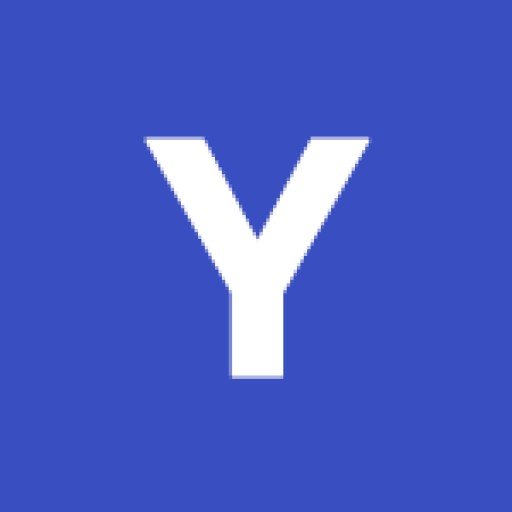[IMPACT] Please describe your proposed solution.
We recommend anyone reading this to read with a fresh mind and truly understand the significant potential of this project for Cardano.
We'll deliver an introductory video + 6 concise tutorials (each 5-10 mins) complete with relevant documentation, notebooks and code. All docs and code will be posted to Github and videos posted to Youtube. Our focus is to produce quality content and keep it simple.
Our series will start with an introduction to how we, a mechanical engineer and a commercial arts major, both in our 20's, ventured into the world of blockchain, token engineering, and started contributing to Cardano. We will use our story to illuminate the path for others!
To support those who participate in our tokenomics course, and join us in this next chapter of our story, we'll issue an NFT badge to participants who successfully complete module 3 and post a notebook of their cadCAD model, vetted by our team, on GitHub.
Cardano needs to attract more young talent. If others get inspired, up-skill and develop new insights from our story (why we do what we do and how we did it) and the concepts and code we share, Cardano will attract the quality creators we want to work alongside. They’ll join us, and add to Cardano for years to come.
Align open-source effort: We will attract many new developers and entrepreneurs to Cardano who'll benefit from sharing the knowledge we've already acquired. Having a common language of core token engineering concepts means the project teams they work on will understand each other, work out how they can interoperate more easily, leading to collaboration that ultimately improves interoperability. Our tutorials help build this common understanding of market mechanisms and token economics to help teams work together to build better tools.
Education for software development: If DApp product managers and software developers don’t know about token economics or token engineering concepts, they will design sub-par solutions. Designers and developers can only imagine solutions to wicked problems using the conceptual tools at their disposal – its a knowledge and labour intensive endeavour. Sharing our understanding of token engineering will give people knowledge and power to solve local problems, elegantly.
Incentive systems generate business value: Token engineering provides the conceptual tools and understanding of software implementation to help design more advanced incentive systems. Blockchain technology regulates agents' behaviour through explicit rules and the immutable recording of interactions (transactions). Most tokens are simple, used as digital monies or unique digital property, but that’s like treating the automobile as a "horseless carriage." More advanced incentive systems to create value can help solve coordination and collaboration problems. By introducing these ideas in an approachable and open way, we can encourage more people, like us, to think differently, putting Cardano at the forefront of the emerging discipline of token engineering.
New forms of governance and collaboration: Our generation and those that follow us need more scalable governance, ways to develop sustainable ecosystems, and enable people, companies, and DAOs to contribute back to our communities. We need to move past direct democratic systems which just don't scale. If we keep relying on voting — plutocratic, quadratic, approval, or one-person-one-vote — we are just reinventing a digital bureaucracy. Now is our opportunity to empower a whole generation of open-source contributors to design markets and incentive systems that do scale, are more decentralised and make designing and developing a better world for all really possible.
In essence, this project goes beyond funding a team; it fuels the future of Cardano by empowering its community (and an influx of youth) with the knowledge to harness token engineering's full potential. With this, Cardano's technological capabilities will be enhanced, attracting new participants and making the ecosystem stronger and more resilient.
[IMPACT] How does your proposed solution address the challenge and what benefits will this bring to the Cardano ecosystem?
We have come to the realisation that token engineering is the crossroads where critical economic incentives, governance models, and technology meet. It's where they connect to develop flourishing socio-economic token systems. This practical, hands-on knowledge, communicated well, will significantly increase adoption and utility of the Cardano stack of technologies.
We view this educational series on token engineering as a long-term investment in the Cardano ecosystem. The series aims to shed light on how two twenty year olds fell into the world of software and how Cardano's unique EUTxO model and Native Asset support can be used to construct intricate micro-economic systems. As we continue to evolve towards the Voltaire stage of the Cardano roadmap, these token engineering principles will prove invaluable for fostering effective on-chain governance and decision-making processes.
By arming the designers and developers, and Catalyst community members more broadly, with an understanding of token engineering fundamentals, we aim to create a vibrant, interconnected system of innovators within the open-source ecosystem. Each tutorial will encourage those watching to contribute their designs back to Cardano’'s code. Building this culture of collaboration and knowledge sharing, starting with our own personal examples, and cultivating community through them, is crucial as we navigate new, uncharted territories of algorithmic governance models, market mechanisms, and beyond.
While token engineering is well established in Ethereum, our proposal's value lies in spreading awareness and practical skills within the Cardano community. If we estimate that about 60k people are currently in the Catalyst community, we believe a target of 300 (0.5%) engaging in learning token engineering within the first year of the content being released is a reasonable goal. When you account for the improvement in software development quality and the natural spread of this newfound knowledge, we anticipate a significant positive impact on the ecosystem.
<u>The Value (who benefits):</u>
Our tutorials will arm entrepreneurs, designers and developers with new concepts that will help them design better economic interactions, build open-source frameworks, construct DeFi protocols, and develop tools for DAO's and stake pool’s.
-
For us as individuals: We’ll grow our understanding by teaching what we've learnt.
-
The business we contribute to: Will grow its brand, attract people to its stake pool, and be able to share the thinking that makes our products possible in an open and transparent way.
-
Students of this course: They’ll learn new, niche, highly sort-after skills and increase their choice of future opportunities.
-
Cardano: Top of the list is attracting new, fresh thinking, young, team members and collaborators with whom we’ll all go further, together.
[IMPACT] How do you intend to measure the success of your project?
To measure the success of our token engineering video series, we'll combine both qualitative and quantitative measures that reflect its direct and indirect impacts. Here's our plan:
- Video Metrics: We'll monitor the number of views for each tutorial video on Youtube, providing us with a direct measure of the interest and reach of our educational content.
- GitHub Interactions: The GitHub insights to view the number of people cloning the repo will give us a clear picture of active engagement and adoption of the content.
- Community Engagement: We will assess the quantity and quality of community interaction through different communication channels. This includes discussions, feedback, and questions related to our tutorials, which will provide insights into comprehension and application of the content.
- Progression of Token Engineering in Project Design: Over time, we expect to see token engineering progressively becoming part of the design process for future projects within Cardano, indicating the assimilation of our teachings into practical use.
- Quality Improvement in Cardano Tools: The application of token engineering concepts should lead to an improvement in the quality of tools and applications developed within the Cardano ecosystem.
- Spreading Awareness: Even if the primary outcome of this series is to attract more talented developers and increase the awareness of how token engineering can be utilized within Cardano we’ll take the win. Over time, as the topic becomes widespread, and those we teach start teaching others, more people will begin applying these techniques and Cardano will improve.
- NFT Badge Distribution: Tracking the distribution of these NFT badges will provide us with measurable insights into both the understanding and effective application of the token engineering concepts in our videos. This gamification element will increase motivation and active learning and offer another, more holistic measurement of success.
These metrics, taken together, will provide a realistic and comprehensive understanding of the direct impact and reach of our project.
The ultimate goal is to make Cardano the hub of token engineering, strengthening its standing as the premier choice for blockchain development and the place to be for young designers and developers.
[IMPACT] Please describe your plans to share the outputs and results of your project?
Video outputs will be shared through Cardano and Token Engineering (TE) Academy Discord channels. We’ll also get distribution through our existing Youtube and Tiktok channels and individual social media accounts. Word of mouth will also play a big role in spreading content. We will start distribution immediately after completing the content, and follow it with promotional content throughout the following months.
The first, main target audience will be developers in Cardano's ecosystem. Up-skilling those looking to learn and apply TE to their projects. This will then lead us to targeting noobs – new talent looking to pursue a career in web3 on Cardano.
In the future, for non-native english speakers, this course may be translated to multiple languages (increasing adoption and utility). And, as participants in our course master the concepts and code, demand for more advanced TE content will validate the need for more content to be created. Likely it will take on a similar structure to this project, but will include all the insights generated through this first video series.
[CAPABILITY/ FEASIBILITY] What is your capability to deliver your project with high levels of trust and accountability?
We've been on a transformative journey into the web3 world and have experienced what its like to understand a powerful way to contribute to the world we share. Along with this, we have relevant knowledge from engineering and commercial art's degrees, commercial and Project Catalyst experience. Here's a little more background about us:
Yohann currently works as a token engineer and has completed Token Engineering, Python, and cadCAD courses (applying this to develop tools in Cardano). He was the project engineering manager on a successful $350k NZD industrial project.
Jack has been a software Engineer on Cardano for three years with experience writing Haskell and Plutus. He's been a team member on Catalyst projects since fund 2, Co-Founder of the Eastern Town Hall community and has experience in audio and video content creation. Check out his previous content below. (He has come a long way since then!)
> <https://clik.vc/mintingnativeassets>
> 289 subscribers on Youtube with videos reaching up to 7.1k views.
> <https://clik.vc/yumidao>
> 109 followers on Tiktok with videos reaching up to 5.7k views (aimed at attracting youth).
Our wider team, who we’ll look to for advice and tutorial content validation, have been heavily involved in Catalyst since fund 4. They have worked on more than 10 projects, led challenge teams and been catalysts and contributors to several community-led projects.
Relevant technical knowledge and experience, a unique story to share, support from established Catalyst community members, and having recently studied TE, make delivering this content with high trust and accountability a safe bet. And, FYI, we think its Important to note, this project only just missed out on funding in fund 8.
[CAPABILITY/ FEASIBILITY] What are the main goals for the project and how will you validate if your approach is feasible?
Our overall goal is to see TE adopted in more projects on Cardano, delivering optimised design solutions. Spreading awareness and building understanding of TE in an EUTxO environment will make mastering the basics for developers on Cardano simple and accessible.
<u>Project Goals:</u>
-
Content Creation: To produce an introductory video and concise six-module tutorial series on token engineering. The success of this objective will be measured by the completion and publication of all six modules as planned.
-
Reach and Engagement: To reach at least 300 community members within the first year of the content being released. This will be tracked through video views, repository clones, and community interactions on various platforms.
-
Knowledge Application: To see an increase in the application of token engineering principles in the design and development of projects within the Cardano ecosystem. This will be measured qualitatively by observing the discourse in the community and quantitatively by the number of NFT badges issued and follow-up with those who have received them.
-
Foster Collaboration and Growth: To promote a culture of collaboration and knowledge sharing within the Cardano community (as well as growing it). This will be measured by the quality and quantity of user contributions, feedback, and discussions around our content.
[CAPABILITY/ FEASIBILITY] Please provide a detailed breakdown of your project’s milestones and each of the main tasks or activities to reach the milestone plus the expected timeline for the delivery.
The objective for each milestone is to deliver concise, video tutorials (5-10 minutes long) and documentation to help learners understand the steps in designing and specifying token systems. Additionally, module 3 will include access to a Cardano stake pool cadCAD model. Each module is self-contained and will take one month to produce, building upon previous topics.
Our project management approach will be iterative and adaptive, incorporating feedback as we go. Regular check-ins will be scheduled among team members to ensure alignment and address any emerging challenges. We'll also maintain active communication with the community through regular updates and engagement on various platforms to make sure we include community feedback as we go.
Risk of going over time & budget has been mitigated by keeping the workflows and delivery of content simple. If for unforeseen circumstances we cannot complete any milestone(s), we will communicate the reasons why with the community and derive a plan to workaround the delay.
Tasks for each module:
- Introduction video (released with module 1)
- Research
- Content creation
- Video recording and editing
- Publishing and promotion
- Notebook vetting, NFT badge minting and distribution (module 3 only)
Success looks like: (acceptance criteria)
- Video and documentation published and accessible to the public (all modules).
- NFT badges for participants who post a notebook of their cadCAD model on Github (module 3 only)
Content that each module will cover:
<u>Introduction </u><u>- Our Story + Overview</u>
- Our journey to Web3 and Cardano
- Motivation behind producing this series
- Overview of course content
Estimated cost: Complimentary offering
<u>Module 1</u><u> - Introduction to Token engineering</u>
- What is token engineering and do we need it?
- What is money? and are crypto-currencies money?
- What is economics all about?
- Why is it important to understand human behaviour in an advanced complex digital economy?
Estimated cost of Milestone: ₳60,000 ADA
> Note: This initial module will incur a higher sunk cost due to setting up workflows and document structures.
<u>Module 2</u><u> - Market design</u>
- What is a market? and what kind of markets are there?
- The basics of governance
- The pricing function
- Price formation
- Price discovery
- Markets as computational systems
- Market case study
Estimated cost of Milestone: ₳40,000 ADA
<u>Module 3</u><u> - Modelling & Simulation</u>
- Overview of Python as a programming language for data science
- Using cadCAD to model complex systems
- How to approach and formulate a cadCAD model
- Explanation of a Cardano stake pool cadCAD model
Estimated cost of Milestone: ₳40,000 ADA
> Note: Notebook vetting + NFT badge minting and distribution will commence upon course completion, allowing students to complete the course, and us to finish producing the course.
<u>Module 4</u><u> - Game theory & Mechanism Design</u>
- What is game theory? and how can it be applied when designing complex systems?
- Power, exchange dynamics in social networks
- What is mechanism design? and how can it be used as a tool for coordinating social behaviour?
Estimated cost of Milestone: ₳30,000 ADA
<u>Module 5</u><u> - Token Design + Token Policies</u>
- The basics of a token
- Governance as capital
- Considerations when designing a token economy
- Legal engineering
- Economic engineering
- Ethical engineering
Estimated cost of Milestone: ₳30,000 ADA
<u>Module 6</u><u> - Incentive Design</u>
- Ledgers in society
- What makes something a ledger
- Making things ledge-able
- Tokens and blockchain
- Property rights
- Tragedy of the commons
- Property and rights
- Fractionalised ownership
- Co-ordinating token sales
- ICO's
- ISPO's
- Token Air drops
Estimated cost of Milestone: ₳30,000 ADA
[CAPABILITY/ FEASIBILITY] Please describe the deliverables, outputs and intended outcomes of each milestone.
The primary deliverables of each milestone have been covered extensively in previous sections. To recap succinctly:
Each milestone will result in:
- One video: A concise, introductory tutorial published on YouTube.
- Written documentation: A guide accompanying each video, available on GitHub.
- A cadCAD model: Accessible to learners in Module 3 for practical learning.
- NFT badges: Awarded to learners who submit their own cadCAD model notebook on GitHub (Module 3 only).
The intended outcomes are:
- Increased token engineering knowledge
- Active community participation
- Application of token engineering in Cardano projects
- Strengthen and grow the Cardano ecosystem
Progress will be tracked using a combination of video views, GitHub repository clones, community engagement volume, and NFT badge distribution, supplemented by qualitative community feedback.
[RESOURCES & VALUE FOR MONEY] Please provide a detailed budget breakdown of the proposed work and resources.
The requested budget is for our time and expenses for six months of the project from its commencement in October 2023 to April 2024 to deliver the videos and related documentation. The first module (most labor intensive) will encounter a higher sunk cost for setting up templates and creating a workflow that is repeatable.
Our project is structured as an intro + six distinct modules, each having its own set of deliverables and associated costs. The estimated costs include all overheads and are normalized at an hourly rate of ₳230, adjusted for the short-term intermittent nature of project funding. This rate accounts for a 8% project contingency and 20% uncertainty cost due to the volatility of ADA over the last three months (we've been using our skills to do the modelling!).
The software services and tools we plan to utilize are Craft for documenting, Jupyter notebooks along with cadCAD for modelling, Linear for project management, Figma for designing and Davinci, Logic and Adobe After Effects for motion graphics audio and video. These software costs are included in the budget for each module. Additionally, so is the compensation for notebook vetting and NFT minting and distribution (module 3). Breakdown below:
Introduction - Complimentary video :)
Module 1 - Introduction to Token Engineering (26%): This foundational module includes setting up workflows, document structures, and creating the first set of learning materials.
- Research & Content Creation: ₳26,000 ADA
- Video Recording & Editing: ₳10,000 ADA
- Publishing & Promotion: ₳5,000 ADA
- Workflow Setup & Document Structures: ₳15,000 ADA
- Total ₳56,000 ADA
Module 2 - Market Design (15%)
- Research & Content Creation: ₳24,000 ADA
- Video Recording & Editing: ₳5,000 ADA
- Publishing & Promotion: ₳3,000 ADA
- Total ₳32,000 ADA
Module 3 - Modelling & Simulation (16%)
- Research & Content Creation: ₳22,500 ADA
- Video Recording & Editing: ₳5,000 ADA
- Publishing & Promotion: ₳2,500 ADA
- Notebook Vetting, NFT Badge Minting & Distribution: ₳5,000 ADA
- Total ₳35,000 ADA
Module 4 - Game Theory & Mechanism Design (14%)
- Research & Content Creation: ₳22,000 ADA
- Video Recording & Editing: ₳5,000 ADA
- Publishing & Promotion: ₳3,000 ADA
- Total ₳30,000 ADA
Module 5 - Token Design + Token Policies (15%)
- Research & Content Creation: ₳24,000 ADA
- Video Recording & Editing: ₳5,000 ADA
- Publishing & Promotion: ₳3,000 ADA
- Total ₳32,000 ADA
Module 6 - Incentive Design (15%)
- Research & Content Creation: ₳24,000 ADA
- Video Recording & Editing: ₳5,000 ADA
- Publishing & Promotion: ₳3,000 ADA
- Total ₳32,000 ADA
Software Services (accounted for): 2,870 ADA (1%)
Verification (accounted for): 3,060 ADA (1%)
Total Project Cost: ₳217,830 ADA [US$58,814 (₳ = 0.27USD)]
[RESOURCES & VALUE FOR MONEY] Who is in the project team and what are their roles?
Our team are engaged on Discord and Cardano Forums. We have relationships with Project Catalyst Fund operational and technical team members and are involved in various communities.
Yohann Irani (Token Engineer, Content Creator):
Bachelor of Mechanical Engineering. Two years Industry experience in systems design and project management. Recent graduate of Python, cadCAD and token engineering courses. Working token engineer, developing a Cardano stake pool model using cadCAD and Jupyter notebooks. Developing DAO compensation plans into cadCAD models.
Profile: <https://twitter.com/Yohannirani>
Jack O'Brien (Media Production):
Haskell and Plutus software engineer. A graduate of Massey University College of Creative Arts, in Commercial Music, Technology. Experience in music and video production. Co-organised the Catalyst Eastern Townhall; setting up and maintaining the translation pipeline and providing open-source training materials and workshops for the community. Studying Evolutionary & Institutional Economics.
Profile: <https://poly.me/parduseidolon>
Jo Allum (Project Co-ordination):
Founder/Director of Venture Centre, an Entrepreneur Ecosystem Development NGO. Venture Catalyst, Community Cultivator, and Core founding team member on both a Cardano Refi and an Atala Prism Digital Identity startup. Contributor and participant in Project Catalyst community projects, including; Catalyst Women, Community Governance Oversight, Improve and Grow Auditability, Audit Circle, Smarthubs, the emerging Cardano Impact Network (network of networks), and Partnership Generation (PGen) Community.
[RESOURCES & VALUE FOR MONEY] How does the cost of the project represent value for money for the Cardano ecosystem?
Token engineering is a powerful skill. It can be applied to all software development, so there's no reason why all projects in Catalyst can't use it for developing their teams, their solutions and value for their communities.
A year's worth of full time work has gone into learning, applying and testing TE fundamentals to the Cardano environment. The tutorials to pass on what we've learnt will have a high production value, explain advanced concepts succinctly, and have applied TE to an EUTxO environment. All we ask for is funding to develop and produce the course content to share what we know and attract more young, talented developers to practice TE in Cardano.
And, since software has infinite leverage, even if only 100 developers start using token engineering, the value created will be significant (for themselves, users of the tools and Cardano) and the impact will last for many years to come. With your support for this project, we can all look forward to reading about, and benefiting from the sophisticated incentive designs people have created in future Catalyst proposals.





